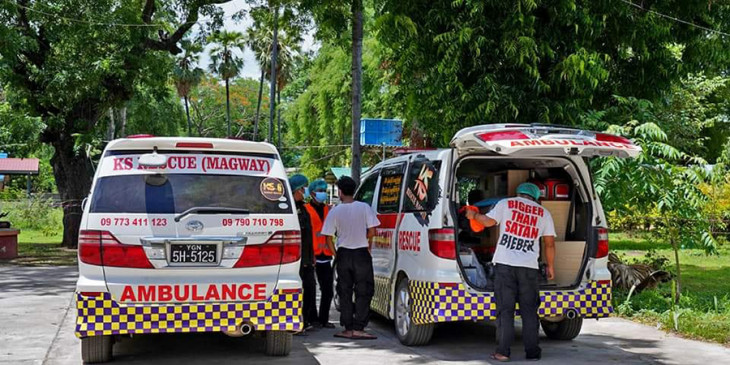On June 1, a liter of premium diesel cost Burmese consumers roughly K2,350 (US$1.30) from pumps in Yangon, over three times the pre-coup price of ~K700.
Over the same time, the Myanmar kyat has lost over one third of its real value, dropping from a pre-coup value of ~K1,350/US$1 to a black market rate of K2,000/US$1.
In response, humanitarian aid workers in Yangon said they have been unable to provide full assistance to those in need of emergency assistance since January due to rising fuel prices.
Only yesterday, the UNOCHA announced that it believes over one million people are now displaced in Burma, with 700,000 having been forced from their homes by military strikes since the coup. The number is the highest in the country’s history.
Due to rising demand and shocks to the supply of fuel in local markets, ambulances and charity groups say that they have scaled down their operations, now only able to perform half of their previous workload.
“Free funeral, ambulance, and food services in Yangon are receiving less funding day by day. Although donors have witnessed that most people are facing difficult situations, they have been unable to assist as before due to a rise in commodity prices, the scarcity of jobs, and decreasing real incomes,” a spokesperson for a charity group in Yangon told DVB.
Those reliant on the use of motorcycles are also reporting increasing difficulties earning a living in Yangon, whilst taxi drivers say they are experiencing serious falls in income.
Although the use of motorcycles has long been technically banned in many townships of central Yangon, areas — such as Thanlyin — in which riding had previously been permitted have seen bans imposed after urban guerrilla forces launched attacks on military targets from motorcycles.
SMEs and family businesses are also reporting the suspension of operations due to high fuel prices and power outages, creating additional difficulties for customers and downstream companies that rely on their services.
“Extortionate fuel and electricity prices mean that we are now selling products at a loss; our industry is extremely energy intensive and we can no longer create our finished products at a profit,” a heavy machinery producer, who has been selling to both the domestic and export markets from Yangon’s Insein township for over 30 years, told DVB.
Fuel and energy costs continue to rise despite the junta’s Supervisory Committee on Import, Storage and Distribution of Fuel Oil earlier announcing that it had a strategy to stabilize gas prices and prevent fuel shortages.



